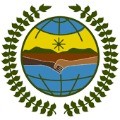 Father Rex Reyes, Episcopal Priest and first Indigenous Person to be named General Secretary of the National Council of Churches of the Philippines (NCCP), was representing SKIPNet (Stop Killing Indigenous Peoples Network) at today’s side event of the UN Permanent Forum on Indigenous Issues.
Father Rex Reyes, Episcopal Priest and first Indigenous Person to be named General Secretary of the National Council of Churches of the Philippines (NCCP), was representing SKIPNet (Stop Killing Indigenous Peoples Network) at today’s side event of the UN Permanent Forum on Indigenous Issues.
Father Reyes said, “We understand our struggle within the framework of the doctrine of discovery [and] we are not calling for a return to the ways of the past. We just want people in the Philippines to share our resources and work together, so that all of us may enjoy the benefits of creation.” These rich resources, which have been both a blessing and a curse on the Philippines, are valuable commodities for many different individuals and companies who have come to the Philippines over the last century and a half seeking fortune. “We are in favor of a mining policy that has the people of the Philippines as its first consideration,” Fr. Reyes said, further lamenting that, “the military has become the de facto security guards of these mining companies, and they act with impunity.” There have been rapes and murders of indigenous people in small mining towns where military personnel are permanently stationed, and as of now, there have been no prosecutions of any kind. “The Government has an anti-insurgency policy as its principle of curtailing dissent, and there is no distinction between combatants and non-combatants,” said Fr. Reyes.
Fr. Reyes’ pastoral care coincides with his work for social justice. “I am a pastor, and I have listened to stories of men, women, and children who have been evacuated from their homes, and have become refugees in their own countries, simply because they opposed a mine opening in their village.” He added, “the church has become the last resort and refuge of people who are suffering and bewildered by the onslaught of a systematic process that they have never encountered before in their lives. That is the reason why SKIPNet is there, and we are willing to take the risk by speaking for these people who have no voices.”